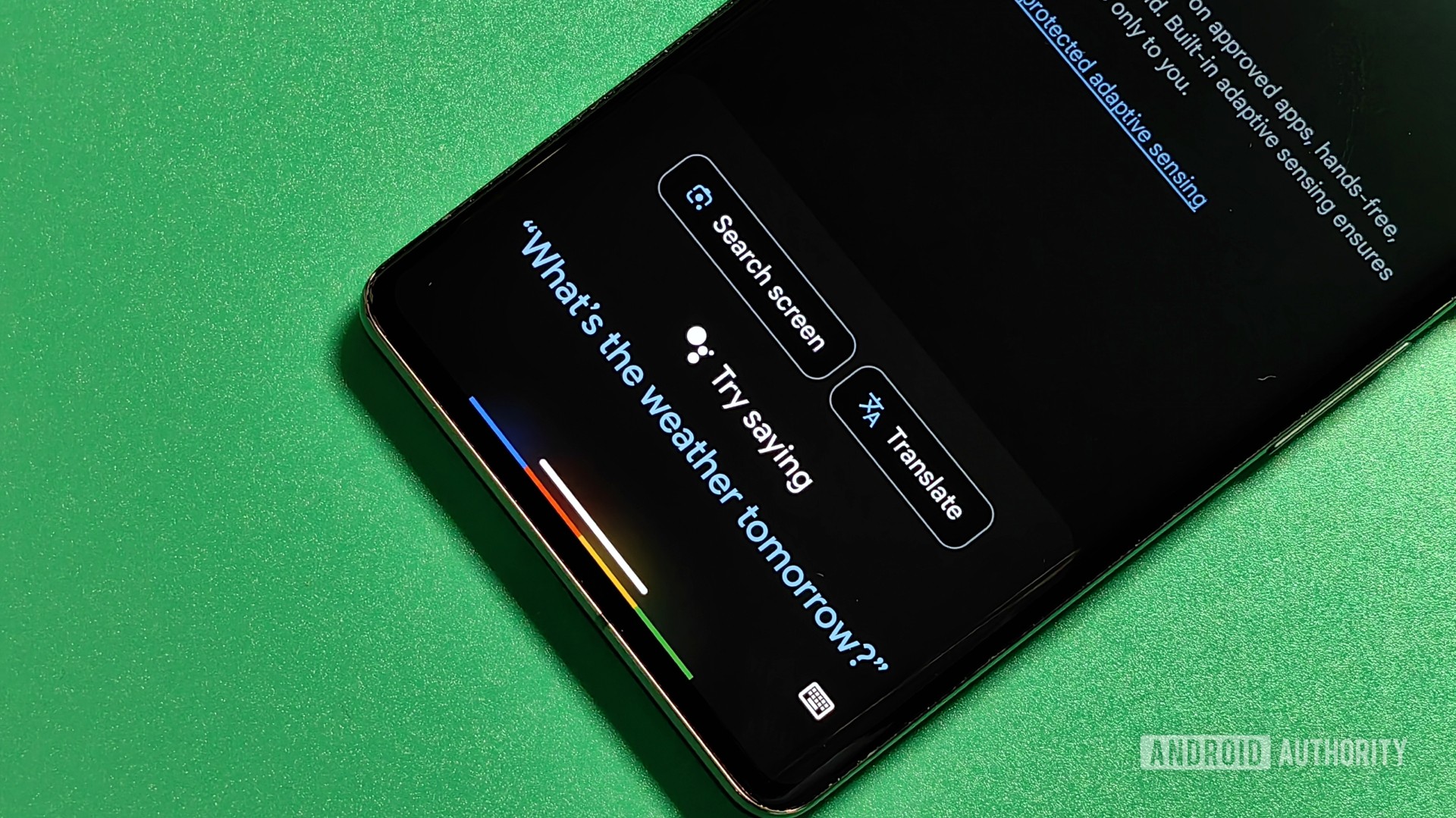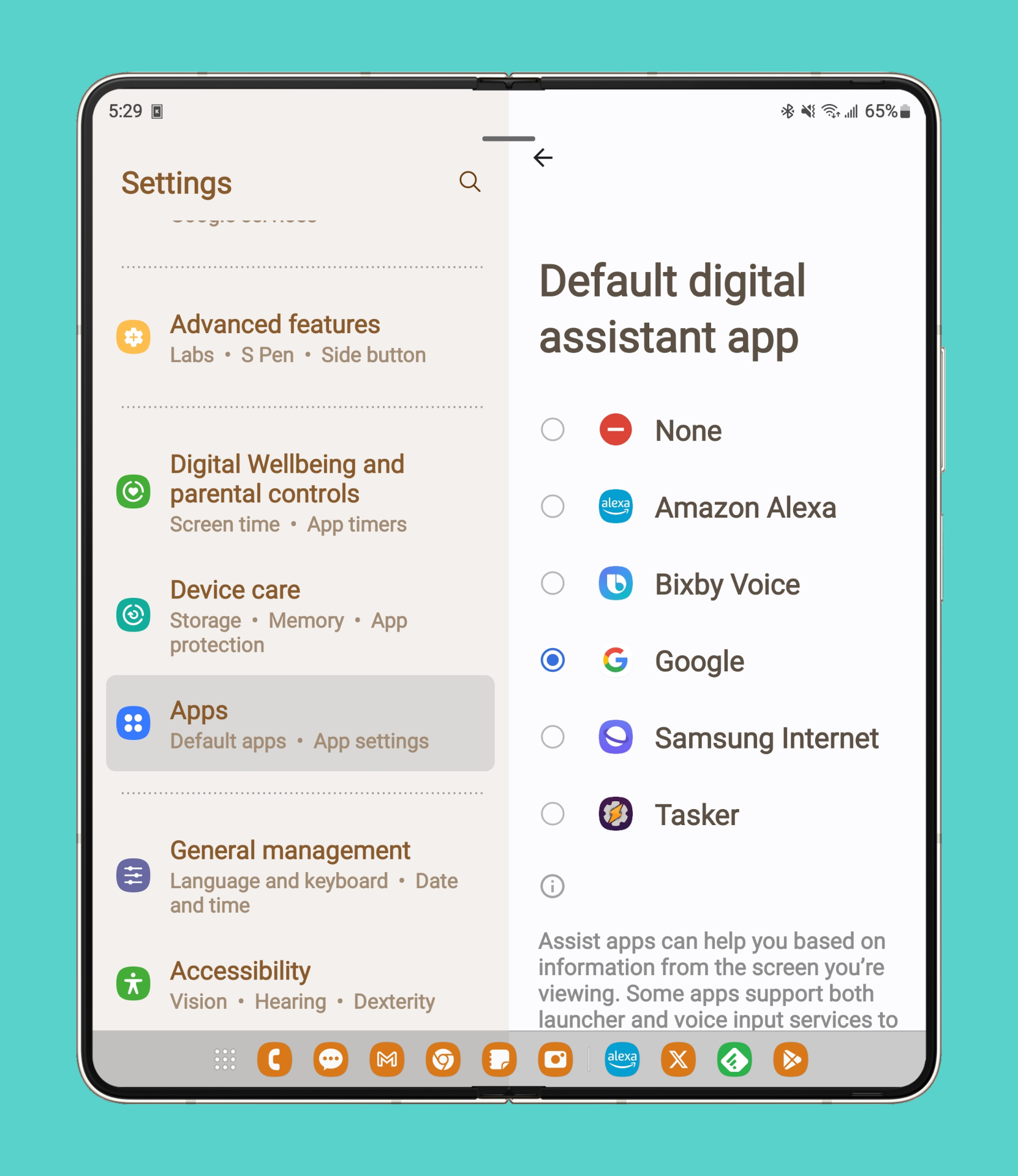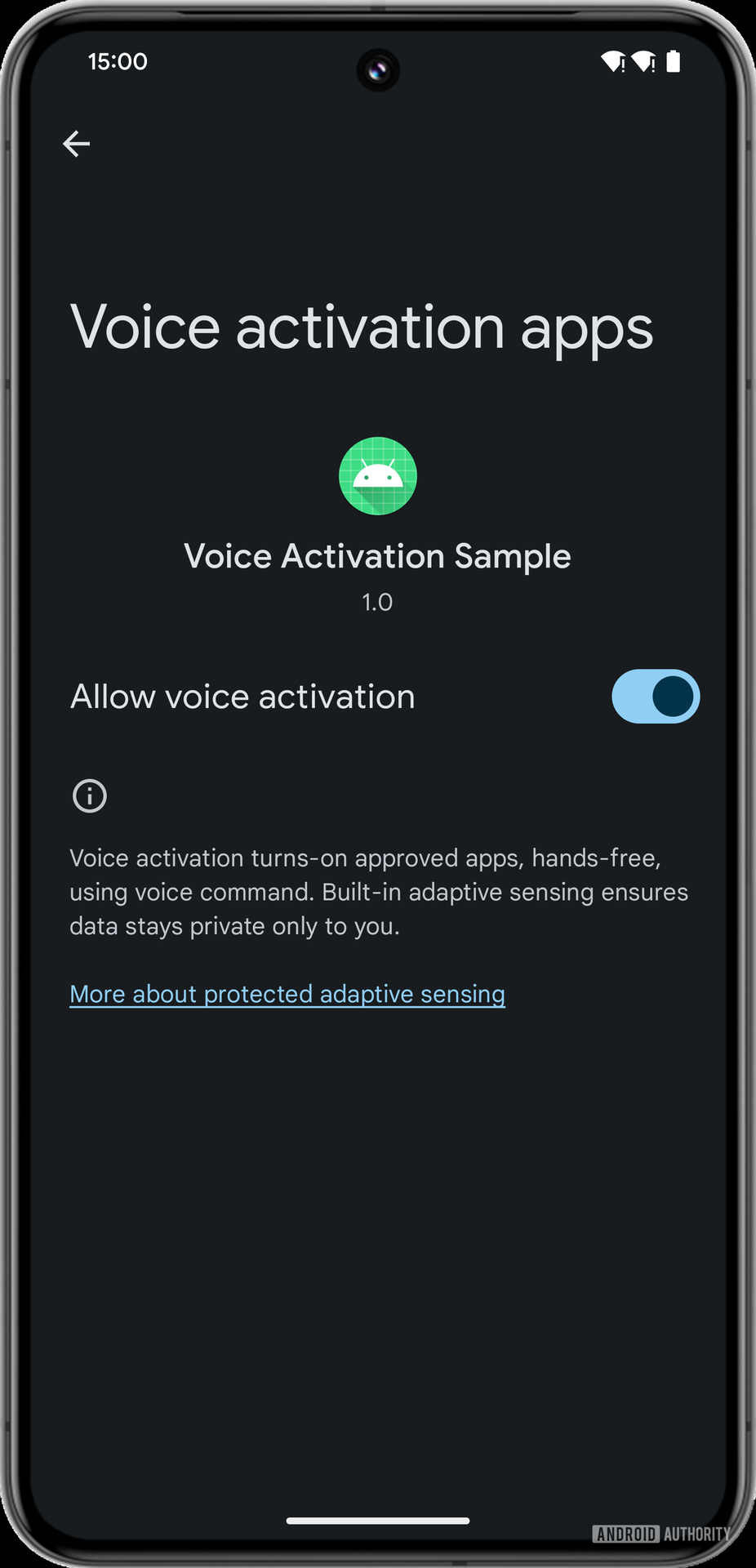Affiliate links on Android Authority may earn us a commission. Learn more.
Android 15's voice activation feature could let you launch ChatGPT hands-free
Published onJanuary 5, 2024

- Currently, the only apps you can launch by voice command on Android are Google Assistant and whatever voice assistant your OEM preloads, such as Bixby.
- A hidden page in the latest Android beta hints at a “voice activation” feature that could expand this capability to more apps.
- It’s not totally clear how it works yet, but the feature will supposedly keep your data private through protected adaptive sensing.
Voice assistants are handy services that let you check the weather, set an alarm, play music, or look up something totally hands-free. Android gives you the freedom to choose between several voice assistants, including Google Assistant, Amazon Alexa, and, if you have a Samsung phone, Bixby. However, while Android does allow any app to become the default assistant app, it doesn’t just let any app respond to wake words like “Hey Google” in the background. This is mainly for privacy reasons since your phone has to constantly listen to audio through the microphone in order to pick up the designated wake word. A new feature in Android 15 called “voice activation” could solve this problem through the use of a privacy-preserving “adaptive sensing” technology.

While digging through the Android 14 QPR2 beta, we discovered a hidden page for voice activation apps (shown below). This page appears under Settings > Apps > Special app access and allows you to designate which apps to grant the new voice activation permission. According to the permission’s description, voice activation “turns on approved apps, hands-free, using voice command. Built-in adaptive sensing ensures data stays private only to you.”

At the end of the description is a link that offers to tell you “more about protected adaptive sensing,” but the link leads to a Google support page that isn’t live yet. Thus, we aren’t sure exactly how protected adaptive sensing will keep your voice data private. It’s possible this feature will be run under Android’s Private Compute Core (PCC), which consists of the system app Android System Intelligence for all offline data processing plus Private Compute Services for all activities that require network access. This way, apps that request the voice activation permission wouldn’t need to process any microphone data themselves; the PCC would pick up the wake word(s) and then activate the app in question. This is mostly our speculation, however.
Digging deeper into the OS code, we found a mention of a log message linking this new permission and API to hotword detection. This log states that the hotword detection service will be shut down whenever the voice activation permission is revoked from an app. We aren’t sure if this voice activation feature will allow apps to wake on custom wake words or only on preset ones, but there at least does seem to be a link between wake words and this new feature.
What’s most interesting about this feature is that the new voice activation permission can be held by third-party apps. The underlying permission, RECEIVE_SANDBOX_TRIGGER_AUDIO, has a protection level of “appop|privileged|signature.” The “appop” protection level signifies that the permission can’t be granted when the app is installed or through a runtime permission dialog, but it can be granted if the user navigates to Android’s Special app access page, as shown above.
In previous versions of Android, it was possible for third-party apps to wake when the “OK Google” or “Hey Google” wake words were detected. However, Google removed this capability in Android 12 and even backported a patch to Android 10-11, claiming it to be a security vulnerability. The current API and permission used to capture and respond to wake words remains accessible only to system apps, but this new voice activation permission currently isn’t as restricted. That could change before the voice activation feature is released, though.
Further details are scarce about this upcoming feature as it’s still in development and likely intended to launch with Android 15. If Google does end up opening up this voice activation feature to third-party apps, then perhaps it could be used by apps like ChatGPT to wake up by voice. The ChatGPT app is preparing to add support for being set as the default assistant app, but even as the default assistant, you wouldn’t be able to use ChatGPT totally hands-free like you can with Google Assistant. Android 15’s voice activation feature could make that possible.
Amazon Alexa could be another beneficiary of this feature, if it works as we described. The app currently only responds to the “Alexa” wake word while it’s open. A handful of “Alexa Built-in” phones supported waking Alexa on any screen, but that program was short-lived, as it required Alexa wake word support to be specifically integrated by the device maker. Today, Google Assistant and Bixby on Samsung phones are the only virtual assistants on Android that support hands-free voice activation, but this Android 15 feature could bring that capability to more services.